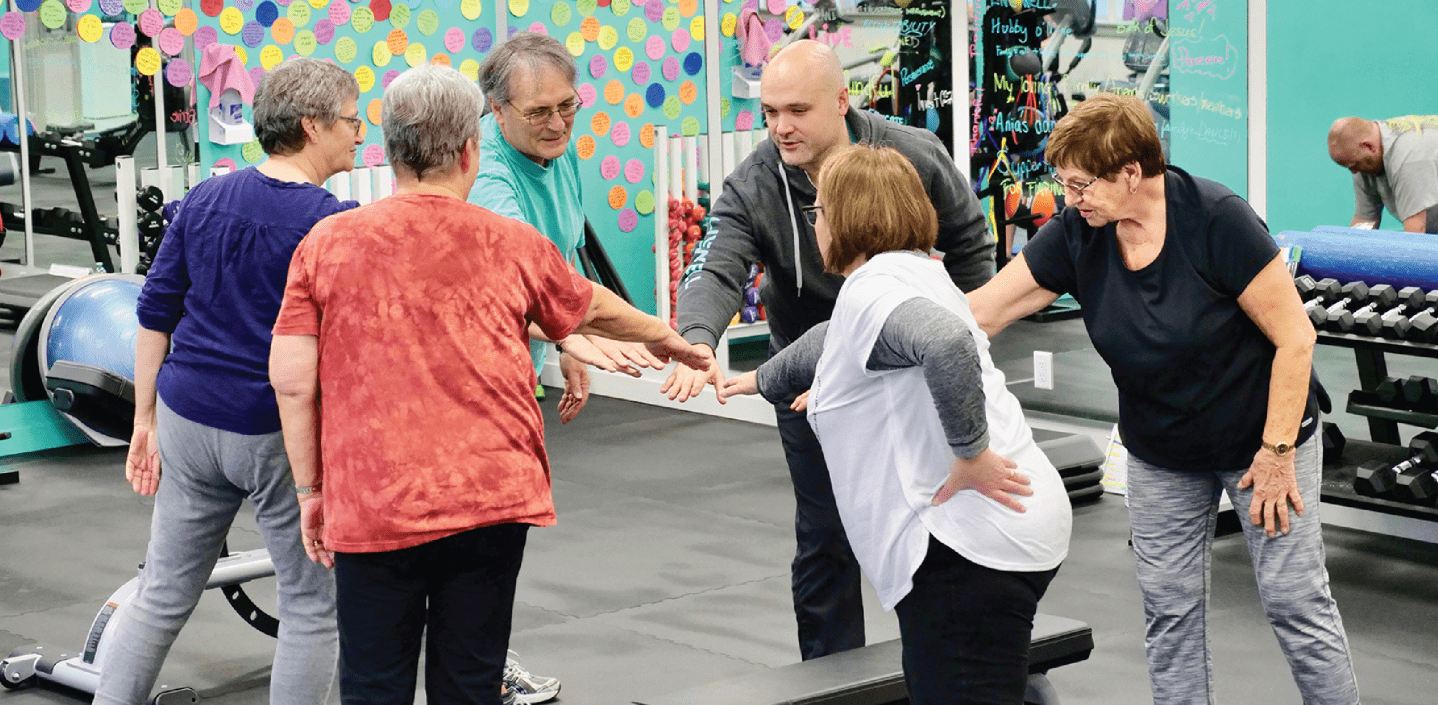
How to Recognize the Symptoms of High Blood Pressure/Hypertension
By LIVE WELL Exercise Clinic

Here at LIVE WELL, helping you live a happier and healthier life is what we do. Our program is designed to help you meet your health goals, and often one of these goals is reducing blood pressure.
In addition to lifestyle changes such as exercise and diet, reducing blood pressure involves regularly getting your pressure measured. Even if you are unsure if you have high blood pressure/hypertension, you should get tested. Additionally, you should be aware of the common risk factors for high blood pressure/hypertension and the symptoms that are associated with it.
The more blood your heart pumps and the narrower your arteries, the higher your blood pressure. Depending on your age and whether you have any health problems, blood pressure which is considered high may vary slightly. High blood pressure/hypertension is common, especially in older adults, and can be easily detected.
A typical blood pressure reading looks like a fraction, such as 120/80 mm Hg. Blood pressure is determined both by the amount of blood your heart pumps and the amount of resistance to blood flow in your arteries. Your blood pressure consists of systolic (the top number) and diastolic (the bottom number) pressures; high blood pressure/hypertension is indicated when one or both measures reading higher than it should.
It is extremely important to monitor your blood pressure and to know the symptoms of high blood pressure, as uncontrolled high blood pressure increases your risk of more serious health problems such as heart attack and stroke.
Often, however, there are no specific symptoms associated with high blood pressure and people may not even know that their blood pressure is high. That’s why it’s especially important to regularly have your blood pressure checked, and to recognize any factors which may put you at risk.
Risk factors for high blood pressure include:
-
Age
-
Family history of high blood pressure
-
Overweight
-
Lack of exercise
-
Tobacco use
-
High levels of sodium in diet
-
Stress
-
Chronic conditions such as diabetes and kidney disease
If any of these risk factors sound familiar, you should have your blood pressure checked regularly. You will likely need your pressure tested two or three different times before being diagnosed with high blood pressure, it can fluctuate throughout the day, and may become elevated in stressful situations such as doctor’s appointments. Repeated tests will determine if your blood pressure is consistently high.
If you experience any of the following symptoms, you should contact your doctor immediately. These symptoms can signal especially high blood pressure, or a hypertensive crisis (a severe increase in blood pressure):
-
Severe headache
-
Vision problems
-
Shortness of breath
-
Nosebleeds
-
Chest pain
-
Fatigue or confusion
-
Blood in urine
If you or someone you love has high blood pressure, our program at LIVE WELL may help! Visit our website where you can learn about LIVE WELL Exercise Clinic’s customized health coaching.
Sign up for the latest news
Search
Categories
- Fitness Tips (7)
- Exercise is Medicine (34)
- Heart Disease (7)
- Prevention (13)
- Healthy Habits (25)
- Weight Management (21)
- Diabetes (9)
- Member of the Month (66)
- Nutrition (16)
- Franchising (14)
- Recipes (1)
- Mind & Body (15)
Archives
- September 2023 (1)
- June 2023 (1)
- February 2023 (1)
- January 2023 (1)
- December 2022 (1)
- November 2022 (2)
- October 2022 (1)
- September 2022 (1)
- August 2022 (2)
- July 2022 (1)
- June 2022 (2)
- May 2022 (2)
- April 2022 (1)
- March 2022 (2)
- February 2022 (2)
- December 2021 (1)
- September 2021 (2)
- August 2021 (1)
- July 2021 (1)
- June 2021 (3)
- May 2021 (1)
- April 2021 (1)
- March 2021 (2)
- February 2021 (2)
- January 2021 (2)
- November 2020 (1)
- October 2020 (1)
- September 2020 (1)
- August 2020 (1)
- July 2020 (1)
- June 2020 (1)
- May 2020 (1)
- April 2020 (1)
- March 2020 (2)
- February 2020 (3)
- January 2020 (3)
- December 2019 (1)
- November 2019 (2)
- October 2019 (3)
- September 2019 (3)
- August 2019 (3)
- July 2019 (1)
- June 2019 (1)
- May 2019 (1)
- April 2019 (1)
- March 2019 (1)
- February 2019 (1)
- January 2019 (3)
- December 2018 (1)
- November 2018 (2)
- October 2018 (1)
- September 2018 (1)
- August 2018 (3)
- July 2018 (2)
- June 2018 (5)
- May 2018 (4)
- April 2018 (4)
- March 2018 (2)
- February 2018 (2)
- January 2018 (1)
- December 2017 (3)
- November 2017 (3)
- October 2017 (2)
- September 2017 (2)
- August 2017 (1)
- July 2017 (1)
- June 2017 (1)
- May 2017 (1)
- April 2017 (1)
- March 2017 (1)
- February 2017 (1)
- December 2016 (1)
